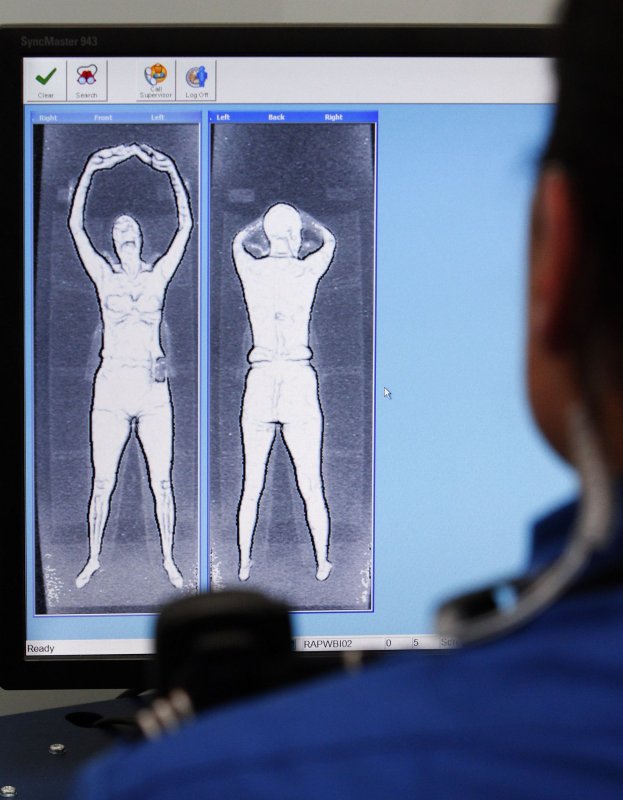A TSA screener demonstrates the a new backscatter imaging device at O'Hare International Airport in Chicago on March 15, 2010. O'Hare is the second airport to receive one of the 150 backscatter units purchased in 2009 with funding from the American Recovery and Reinvestment Act. UPI/Brian Kersey |
License Photo
WASHINGTON, Nov. 22 (UPI) -- One U.S. scientist who helped develop full-body airport scanners says a simple software fix could mollify objections to the so-called "virtual strip search."
Willard "Bill" Wattenburg, a former nuclear weapons designer at the Livermore lab involved in developing the technology, said he offered the "fix" concept to U.S. Department of Homeland Security officials four years ago but was rebuffed, The Washington Post reported Monday.
The software fix would modify the images captured by the scanners so they resemble reflections in a fun-house mirror, but any potentially dangerous objects would be clearly revealed, Wattenburg said.
As currently configured, the scanners produce clear outlines of the naked human body, and the U.S. Transportation Security Administration has found itself enmeshed in controversy since installation of the new scanners started last month.
"Why not just distort the image into something grotesque so that there isn't anything titillating or exciting about it?" Wattenburg asked.
A TSA spokesman said he could not immediately confirm Wattenburg's account of a 2006 conversation with federal officials.
"That was another administration," Nick Kimball said.
Airline passengers who object to the scanners are given the option of an "enhanced" patdown by TSA agents that includes the touching of clothed genital areas.
For many, that option is even less appealing, and critics have compared the process to sexual assault, the Post reported.















